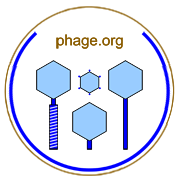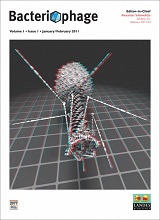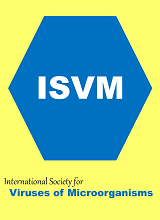

Chapter authored by Jason J. Gill and Ryland F. Young, III published in 2011 (projected publication date).
Gill, J. J. and R. F. Young, III. (2011). Therapeutic applications of phage biology: history, practice and recommendations, p. ???-???. In: Miller, A. A., Miller, P. F. (eds.): Trends in Antibacterial Discovery: Answering the Call to Arms, Caister Academic Press, Norfolk, UK. [Google Books]
Abstract: "A bacteriophage, or 'phage', is a virus that infects bacteria. This chapter is aimed at assessing the record and potential of the use of phage and phage-derived molecules in antibacterial therapeutics and prophylactics. Unlike other areas of current biomedicine, phage therapy has a long history that pre-dates even the basics of modern biology, and even the development of phage biology itself. Thus it is important to reflect on the historical record to establish a context before considering the more recent literature and, finally, the prospects and obstacles facing phage therapy at the current time. In addition, although the study of phage was vibrant through the mid-1970s, the last decades of the twentieth and the first decade of the twenty-first centuries witnessed a drastic contraction in the number of phage biology laboratories. This has led now to an odd situation where interest and activity in phage research are outstripping the available expertise. Accordingly, a section of this chapter is devoted to a summary of the fundamental characteristics of bacteriophage that would be important to the prospective phage therapist. Next, we present a review and meta-review of the recent phage therapy literature and then summarize the current practices in the field. Finally, we consider the future, in terms of what should be done, according to our perspective. ¶ Please note that throughout this text, we define terminology for elements and concepts important to phage biology and its practical applications. We have done this in an overt attempt to simplify the text, but in some cases we admit to promoting what we think is better and less confusing terminology than that currently in general use. To this end, a glossary is provided at the end of the chapter."
Contact web master. Return to terms.











